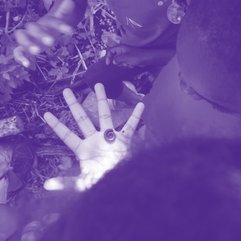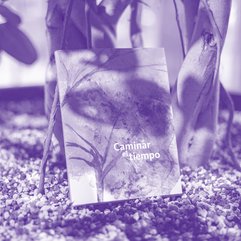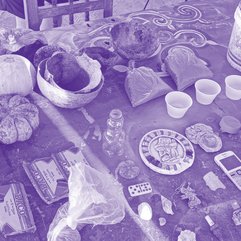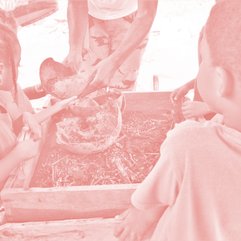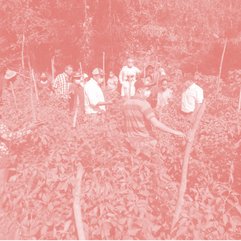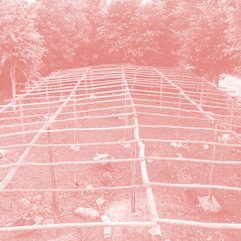Spore hosts: Promiscuous Infrastructures
Workshop with the Promiscuous Care Study Group on practicing care and whispering in the cracks
16.30-18.30
Save the Date
For Youths and Adults
in German/in English

Fully booked
A workshop with the Promiscuous Care Study Group on practicing care, grounding and ungroundedness, and building from the cracks.
The workshop is based on the two newly published books Promiscuous Infrastructures: Practicing Care and Utterances: Composing a Care-Informed Research Practice in the Cracks, which will be presented to the public after the workshop.

 Utterances: Composing a Care-Informed Research in the Cracks and Promiscuous Infrastructures: Practicing Care
Utterances: Composing a Care-Informed Research in the Cracks and Promiscuous Infrastructures: Practicing CareDuring the workshop, the group will facilitate a winter preparation ritual. Using excerpts from the two publications co-created by the study group, we ask: on which ground are we standing? How are you connected to the soil, and what are your differences and potential ruptures? What might be the common grounds for caring for the earth and each other?
Our study group offers an interactive experience that is all about tuning in. It starts with a grounding check-in, a short reading, and a discussion of various excerpts from publications on soil and its connection to rupture, violence, interrelatedness, grief, death, decay, personal history, solidarity networks, social justice, contamination, and toxicity. We then embark on an itinerant walk through the grounds, encouraging participants to consider and creatively improvise in whispering conversations within and beyond language. What questions might you ask the ground, and how many answers might it send back?

 How Can Institutions Learn?
How Can Institutions Learn?This workshop is particularly relevant for people working in arts education, higher education, alternative education, group pedagogy, collaborative ethics, or otherwise engaged in social gardening, collectivity, embodiment, and transformational horizons.

 Lola Olufemi and Yusser al Obaidi, The Meal is Language and this is a Dinner Party. At TENT with Reading Room, Rotterdam, '23
Lola Olufemi and Yusser al Obaidi, The Meal is Language and this is a Dinner Party. At TENT with Reading Room, Rotterdam, '23
The Promiscuous Care Study Group is an interdisciplinary group of students, teachers, and researchers situated around the Willem de Kooning Academy, an art and design academy in Rotterdam. The group formed around shared sensibilities, practices, and approaches that reach through and beyond our institutional roles and institutional work as artists, designers, writers, and educators. The collective research in the study group is diverse in approach and subject matter, touching themes ranging from institutional change, communal responsibility and accountability practices, mental health and collective care, hospitality and hosting, soil, counter-histories, intergenerational healing, joy and collective grief, and the poetics of imagining otherwise.




